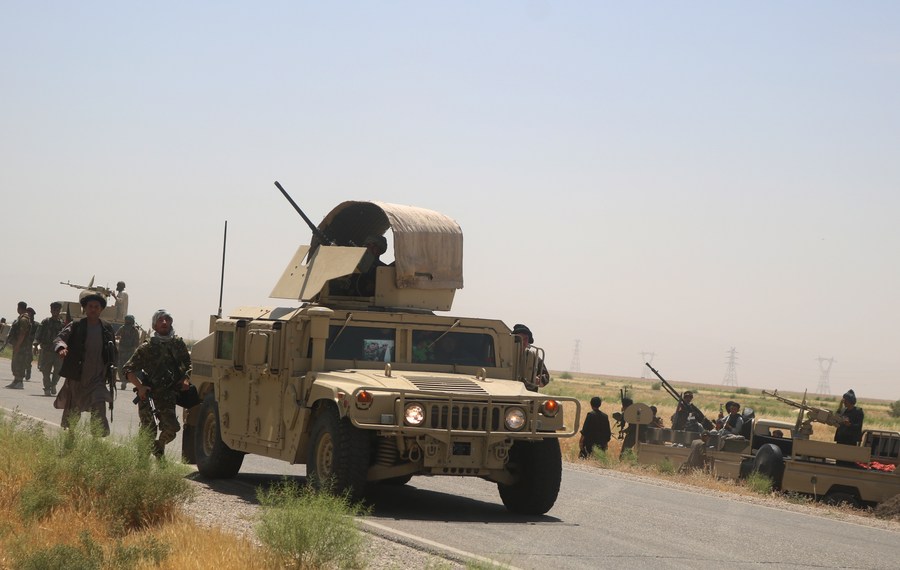US defeated by lies, again, in Afghan war


Hubris, self-deception among other reasons leading to Vietnam-like failure
WASHINGTON-Lies, ego, hubris and self-deception: Experts are counting up the reasons for failure in the United States' two-decade war in Afghanistan. Calling it ill-fated from the beginning, they say the episode is comparable to the country's experience in Vietnam.
On Thursday, the official US watchdog on operations in Afghanistan said it is too early to call the war a complete failure, because the government retains a slim chance of prevailing over the Taliban, the hard-line Islamists that the US and allies ejected from power in November 2001.
But he said that the US forces, who will depart by the end of August, leave behind the relatively weak Afghan security forces and the government.
The "big question", said John Sopko, the special inspector general for Afghanistan reconstruction, is "after all the money, $86 billion, and 20 years, why did we see such poor results?"
Sopko, whose congressional mandate was to monitor the effectiveness of the military and development effort, said in a discussion with reporters on Thursday that two words describe the US experience.
"One is hubris, that we can somehow take the country that was desolate in 2001, and turn it into a little Norway," he said.
"And the other thing is mendacity. We exaggerated, over exaggerated, our generals did, our ambassadors did, all of our officials did, to Congress and the American people, about 'we're just turning the corner, we're about ready to turn the corner.'"
He said that the US military was fixated on short-term achievements and constantly changed its objectives to look better.
"Every time we went in, the US military changed the goalposts, and made it easier to show success. And then finally, when they couldn't even do that, they classified the assessment tool," he recalled.
Washington, he said, thought "that we would create a strong central government".
"And that was a mistake. ... And if you talked to any experts on Afghanistan, they would have said, it was a mistake. The problem is, we didn't listen to any of them."
Carter Malkasian, a former senior Pentagon official who served in Afghanistan for years, wrote in a newly published book: "There can be little doubt that we lost the war."
He said that the Taliban showed more will to fight "invaders", while the people viewed the government as dependent on foreigners.
"The very presence of Americans in Afghanistan trod on a sense of Afghan identity that incorporated national pride, a long history of fighting outsiders and a religious commitment to defend the homeland," Malkasian wrote.
"We believed things were possible in Afghanistan-defeat of the Taliban or enabling the Afghan government to stand on its own-that probably were not."
Experts say that, even if they were also disliked and poorly managed, the Taliban were more intensely motivated, by religion and hatred for the West.
Underreported casualties
Meanwhile, according to a report in July by a human rights group, underreported civilian casualties from US airstrikes, like a 2009 bombing that killed 100 civilians in western Farah Province, eroded potential support in the countryside for the Western forces.
As the US exits, Sopko said it leaves behind a country still suffering huge power shortages and a large, untrammeled trade in opium and heroin-problems US officials had just "kicked down the road".
"Don't believe what you're told by the generals and ambassadors or people in the administration saying we're never going to do this again. That's exactly what we said after Vietnam," Sopko said.
"Lo and behold we did Iraq. And we did Afghanistan. We will do this again. And we really need to think and learn from the 20 years in Afghanistan."
Early on Friday, the first flight evacuating Afghan interpreters and others who worked alongside US forces in Afghanistan landed at Washington's Dulles International Airport, according to an internal US government document and a commercial flight-tracking service.
The airliner carried 221 Afghans, including 57 children and 15 babies, according to the internal document obtained by The Associated Press.
Agencies Via Xinhua
































